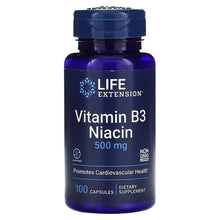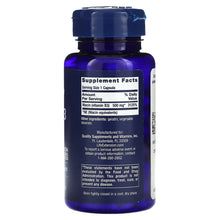Dietary Supplement
Niacin Vitamin B3
Many B vitamins are utilized by the body separately or in union with enzymes in energy release process from carbohydrates, fat, and protein. Vitamin B coenzymes are key to the metabolic pathways that produce the needed energy for every cell in the body. Because they are mutually dependent in their metabolic activities, even a deficiency of one B vitamin can disturb optimal functioning of organ systems throughout the body.
1 mg of Niacin Vitamin B3 can be synthesized. In its coenzyme forms, niacin is vital to energy transfer reactions, in specific for the metabolism of glucose, fat, and alcohol. The beneficial effects of Niacin Vitamin B3 beneficial effects on blood lipids is well-documented.
Suggested Use Of Niacin Vitamin B3
Read the entire label properly and follow the directions carefully prior to use.
It is advised to Take one (1) Niacin Vitamin B3 capsule per day with meals, or as suggested by a healthcare practitioner.
Other Ingredients In Niacin Vitamin B3
Niacin Vitamin B3 - Gelatin, vegetable stearate.
Niacin Vitamin B3 contains NO milk, egg, fish, crustacean shellfish (lobster, crab, shrimp), peanuts, tree nuts, soybeans, yeast, wheat, gluten, corn, or rice. Niacin Vitamin B3 Contains NO sugar, and no artificial sweeteners, flavors, colors, or preservatives.
Warnings
Caution: Temporary flushing, itching, rash or gastric disturbances may occur. Proper Liver function testing is recommended when niacin is taken in excess of 500 mg per day. Those with gout or liver diseases must avoid taking high doses of niacin.





